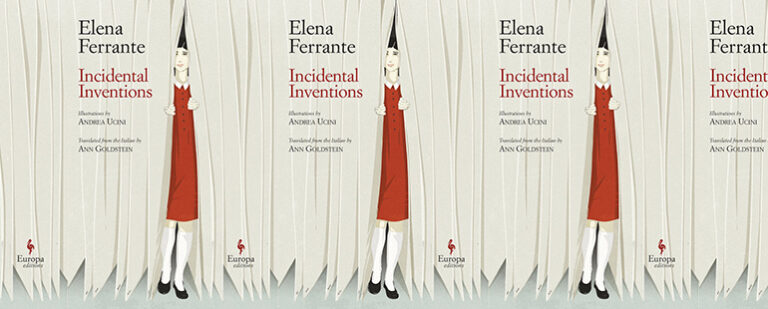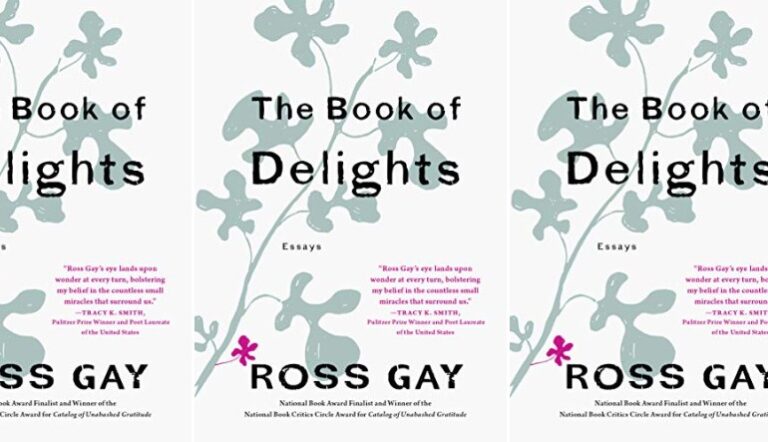The Best Short Story I Read in a Lit Mag This Week: “Appellations” by Faith Shearin
Juliet famously said of Romeo’s surname, “That which we call a rose by any other name would smell as sweet,” which may be true, but also—as the rest of the Bard’s play argued—problematic. So what is in a name? “Appellations” by Faith Shearin (FRiGG) explores what bearing names can have on one’s destiny.
Shearin introduces this dynamic in the first line.
When we checked into Big Meadows Lodge, we were given a new last name. Our father, Henry, has a thick southern accent, and when he called to make our reservation, he was misunderstood. According to the ski passes, and our tickets to the dining room, he was now Harry Bighorn.
The change seems innocuous enough at first, and their decision not to fix it just a way for the lodge operators to save time and paper. When told the news, Hazel seems intrigued by the possibilities of having a new name for the ski trip. After an initial ski lesson, she announces that she has no desire to go skiing any longer—through backstory Shearin reveals that though her sister has a graceful athleticism, she does not. So while Dad and Beth go skiing, Hazel and her mother, Ruth, go on a hike in the forest, where they further discuss the name change.
“It seems to me,” I said, “that our lives would be different if we were named Bighorn.”
“Different in what way?”
“Wouldn’t you want to be louder and more outgoing if you had a name like that?
Wouldn’t we paint it in bright colors on our mailbox?”
“I didn’t want to change my name when I got married,” my mother said.
“Why not?”
“I couldn’t see why your father’s name should be more important than mine,” my mother said, “And I liked the name Spivey; it reminded me of secrets and vines; people who heard it knew I was Irish.”
Names suggest heritage, images, and even actions. They also express cultural values and power dynamics. In short, they can be incredibly important. While both Ruth and Hazel discuss this reality in the open, it’s Henry alone who doesn’t seem to care. In a way, the whole cast’s various approaches to the new name create the spectrum of the different responses to names, from indifference (Henry) to irritation (Ruth) to excitement (Hazel).
So how about Beth? Upon returning from the ski trip, we find that she has broken her leg while on the slopes and must see a doctor. Notice this interaction at the clinic, where once again the question of names comes up, only this time in regards to who or what entity has the right to choose one for another.
“Frances?” the nurse called, and our mother stood up.
“Frances?” Beth said; she continued to sit.
“It’s your first name,” our mother whispered. “It’s on the insurance card.”
“She likes to be called Beth,” our mother told the nurse.
“What seems to be troubling Frances?” the nurse asked when we got into the exam room.
“She hurt her ankle skiing,” our mother said…
The doctor arrived, holding a clipboard. “How is Frances feeling?” he said.
If your name in the system is Frances, then your name is Frances, regardless of what one likes to be called. But Shearin doesn’t just explore the deterministic psycho/social/cultural implications of names. There’s also a lovely passage right near the end, after Hazel gets her family to embrace the new names for the sake of a few laughs.
“I convinced my family to go to a party at the lodge on our last evening. We made up fake facts about ourselves and spent one night pretending to be Bighorns.
“Hi, I’m Harry Bighorn,” our father said to the first strangers we met, and Beth and I could barely contain our laughter. Our mother stood beside our father, beaming; she pretended that she loved to ski.
“I’m wild about algebra,” I told an old woman who asked about my favorite subject in school.
“Me, too,” Beth said. “There’s nothing like a linear equation.”
The last line, I think, exposes the deeper fabric of Shearin’s exploration. Sure, a name can take part in shaping one’s destiny, but it can also give one the power to create a new destiny for themselves, even if for just a week, or an evening.
Shearin ends the story by projecting into the future the lives of all of the family members, specifically in how they define and redefine the ways in which they use names to express themselves—as well as the many shifting reasons why they do so. There are, perhaps, as many different ways to view a name as entities there are to give one.


